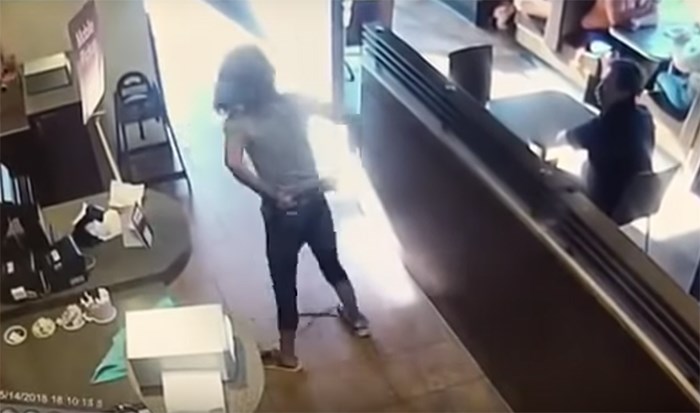 Screen grab
Screen grab
The emergence this week of a video in Langley, BC of a person defecating on camera in a local Tim Horton’s should be a conversation where we focus on mental health, workplace safety, and appropriate access to washroom facilities but there is however an important conversation emerging from this event, and that is how to talk to children about viral videos and the media literacies needed to understand what’s happening on a broader social scale.
Talking to kids about the world of the internet can be difficult for parents and the themes that emerge from videos and online content can change the daily conversations that families have together - especially when social media sharing includes events from our communities, schools, and neighbourhoods involving taboo or dramatic events.
Teachers and school counsellors have to navigate disclosures from students about videos sourced on YouTube but the reality is the video often starts on a website with less oversight and commitment to age-gating like Reddit, WorldStar, or LiveLeak and the content can be explosive in conversation within a school community.
Digital environments allow kids to see the world - all of it, the good, the bad, the uncensored, the viral - and virality is a constant feature of our society and has become an everyday media product of our social media use. Videos shared on social media, once viral, migrate to the six-o’clock news and it should not be a surprise that children will see and hear aspects of the videos as conversations develop, whether it be from friends at school or overhearing people in their home, talk about a video that captured the attention of the day.
Keeping kids safe, healthy, and aware of the content in viral videos is a challenge that teachers, parents, and guardians are struggling with but the reality in this dialogue is that kids should feel encouraged by adults in their life to talk about the experiences that they have online. The difficulty for adults is that there are some very graphic and difficult things to talk about in social media sharing but the conversation has to be met with a supportive, non-judgemental, and shame-free experience that provides insight, empathy, and care.
What’s important to recognize in conversation with children about viral videos is that children have an internet knowledge that starts in a world without boundaries of oversight and that access to content that parents may find disturbing is a click away. For parents and guardians of kids, the need to participate in the conversations that emerge in the daily lives of children is imperative and not talking to kids about their online experiences is a mistake. The learning and empathy needed to address some of the themes in viral videos require life experiences that adults can provide - no matter how transparent we have to be.
For parents and guardians, this includes putting in the time to be available for the disclosures of media experience that kids will have and provide avenues to open dialogues with the trusted adults in their lives. Whether youth take advantage of these conversations and benefit, is an open question, but new media technologies will continue to push an isolated event and move the discussion to our homes, schools, and playgrounds - being there to hear how kids perceive the events sourced from the internet can mitigate some of the risks but being there for the kids should be supportive and factual of the realities of the world, not reactive and isolating because it’s too hard to talk about.
- Jesse Miller


